The Cases Against Trump: What to Know About the Various Investigations Surrounding the 45th U.S. President
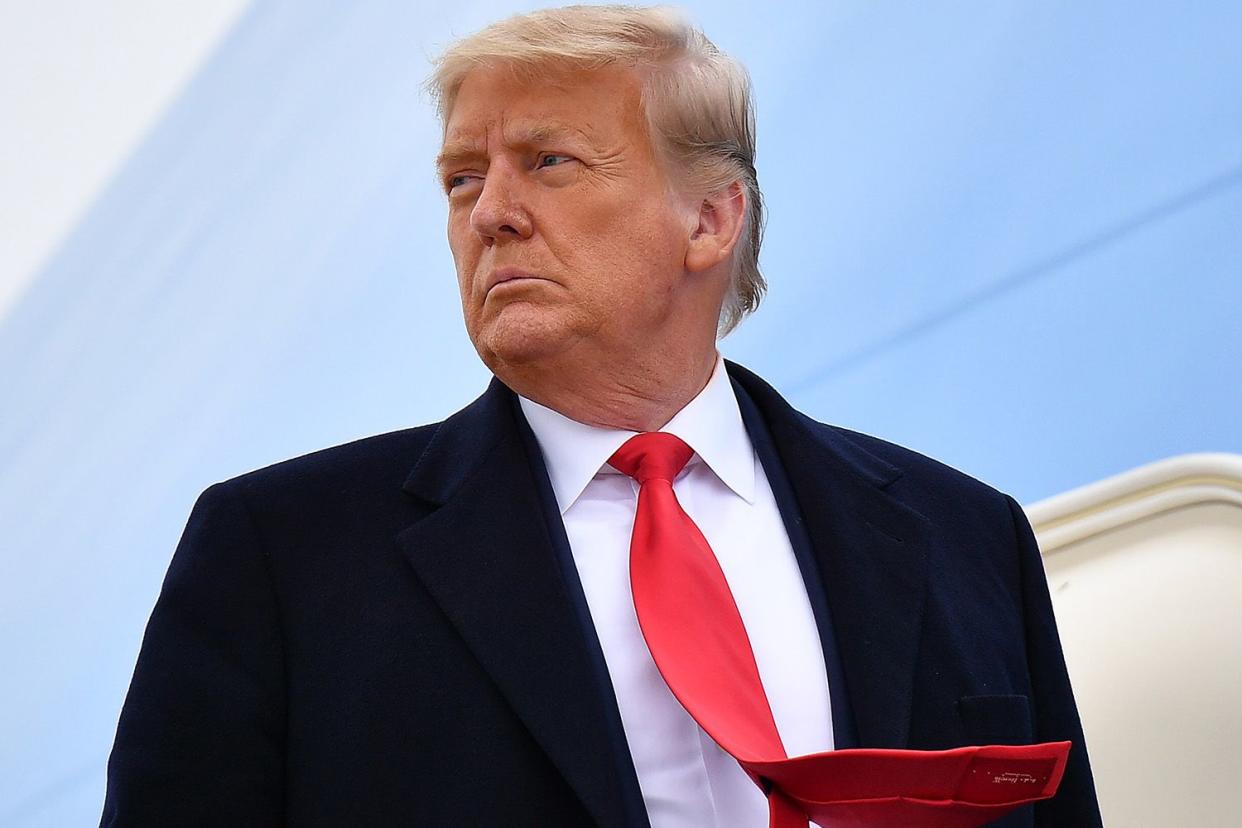
- Oops!Something went wrong.Please try again later.
- Oops!Something went wrong.Please try again later.
- Oops!Something went wrong.Please try again later.
MANDEL NGAN/AFP/Getty
Since leaving office in January 2021, Donald Trump remains a highly influential figure in Republican politics. But the twice-impeached former president's post-White House prestige has been overshadowed by intensifying investigations on various fronts, including into his political conduct and business affairs.
Trump, his family and supporters have repeatedly and insistently denied wrongdoing in the various criminal, congressional and civil inquiries. No charges have been filed against the former president.
Here's a summary of the most prominent investigations.
Classified Documents at Mar-a-Lago
On Aug. 8, FBI agents executed a search warrant at Trump's Mar-a-Lago home in Palm Beach, Fla., in an explosive moment in the ongoing criminal investigation into whether the former president violated statutes related to national security by allegedly mishandling classified documents he removed from the White House at the end of his presidency.
Under the Presidential Records Act, presidential and vice-presidential records are the property of the federal government, with the National Archives and Records Administration (NARA) responsible for the "custody, control and preservation" of those materials once an administration ends.
When Trump returned 15 boxes of material to NARA in January, officials at the agency found documents marked classified and contacted the Department of Justice, which began its investigation.
RELATED: A Timeline of the DOJ's Investigation into How Donald Trump Has Handled Classified Documents
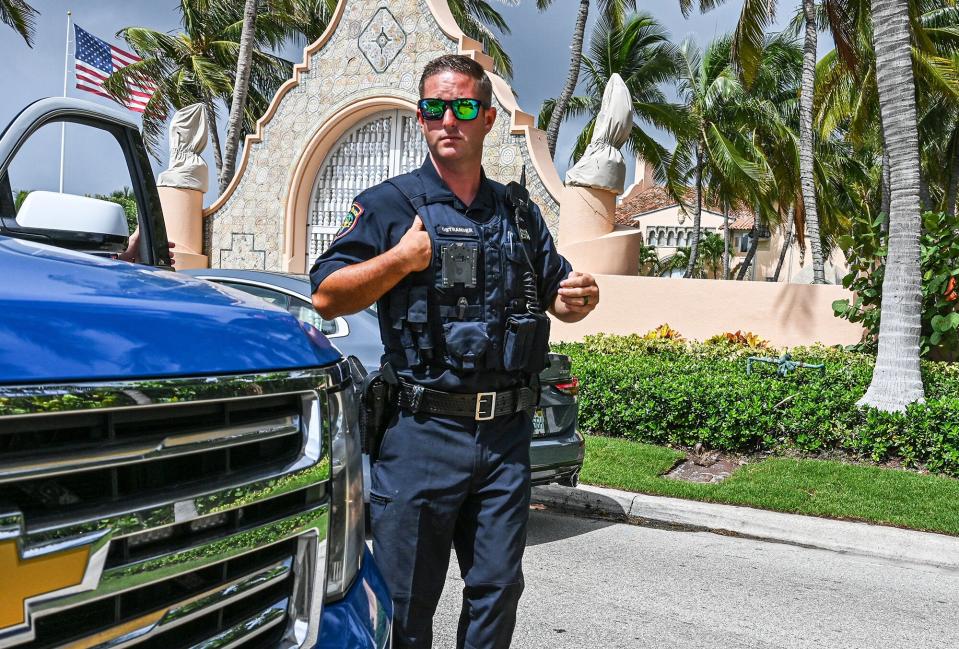
GIORGIO VIERA/AFP via Getty A law enforcement officer stands outside Trump's Mar-a-Lago residence
The warrant used by the FBI to search Mar-a-Lago in August revealed that agents were investigating Trump for removal or destruction of records, obstruction of an investigation and for potentially violating the Espionage Act.
A 38-page affidavit used to obtain the warrant, which was later unsealed, showed there was probable cause "to believe that evidence, contraband, fruits of crime, or other items illegally possessed" would be found on the premises of Trump's home.
Among the materials retrieved by the agents were 11 sets of classified documents, including some marked "top secret" that are only meant to be viewed at secure government facilities, according to a property receipt that was unsealed with the search warrant.
Trump has said on social media that any documents in his possession had been declassified. But in a response to a request from Trump's legal team to appoint a special master to review the materials retrieved by the FBI, federal prosecutors included a photo of document folders found at Trump's home that were clearly marked "Top Secret."
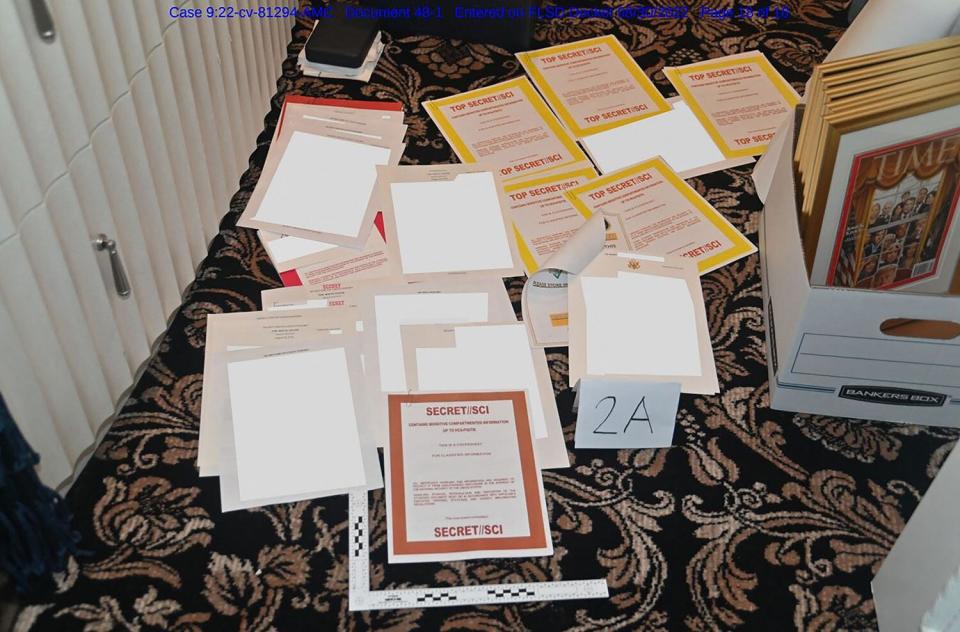
JOSE ROMERO/US DEPARTMENT OF JUSTICE/AFP via Getty Images
"In some instances, even the FBI counterintelligence personnel and DOJ attorneys conducting the review required additional clearances before they were permitted to review certain documents," officials said of the materials found by the FBI.
In their 36-page court filing submitted Aug. 30, U.S. prosecutors said that "efforts were likely taken to obstruct the government's investigation."
The filing outlined how Trump's advisors said in a sworn statement dated June 3 that all the documents taken from the White House to Florida had been previously returned in compliance with a subpoena and that a "diligent search" of boxes in a Mar-a-Lago storage room had been done to ensure the handover was complete when Trump's team passed off 38 documents that day.
But investigators came to believe that highly sensitive materials were "likely concealed and removed" from the storage room, according to the filing.
Indeed, the FBI search turned up more than 100 additional classified records. Some, including those in the photograph, were found in the "45 office," prosecutors said in the filing, in a reference to the former president's work space.
In total, more than 300 classified documents found at Mar-a-Lago have been recovered by the federal government.
Jan. 6 Attack on the U.S. Capitol
The House committee investigating the Jan. 6, 2021, attack on the U.S. Capitol has shared its conclusions — based on countless hours of testimony from a legion of former Trump officials and other evidence — about multiple aspects of efforts to overturn the results of the 2020 presidential during a series of televised public hearings throughout the summer.
The hearings each featured new revelations about events on and leading up to Jan. 6, when a mob of Trump supporters disrupted the certification of the election results during a joint session of Congress.
"President Trump believed his supporters at the Capitol, and I quote, 'were doing what they should be doing,'" the committee's vice chair, Republican Rep. Liz Cheney, said at the start of the hearings in June.
RELATED: Liz Cheney Says Jan. 6 Committee Role May Be 'Most Important Thing I Ever Do'
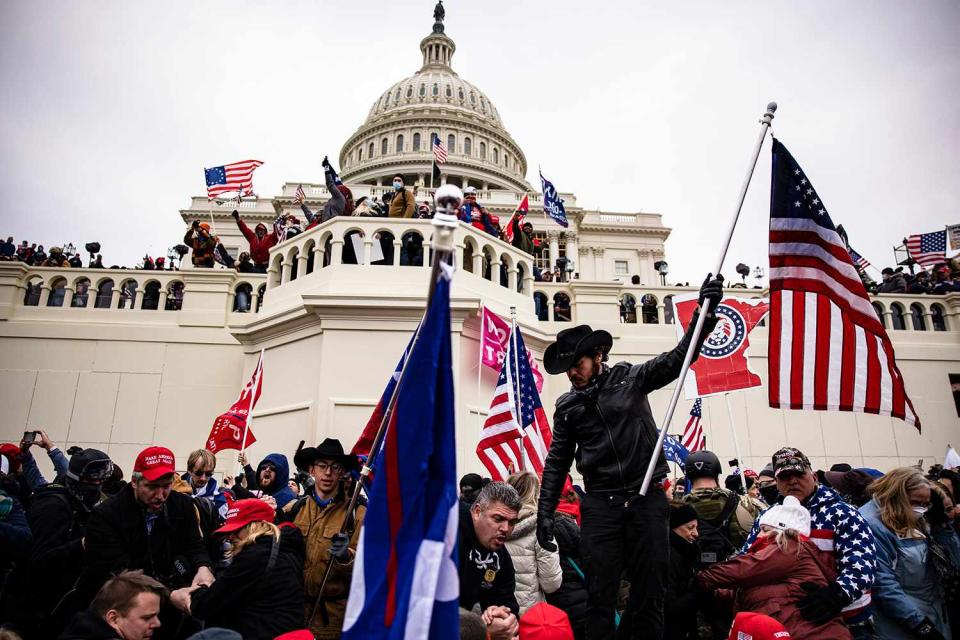
Samuel Corum/Getty Rioters at the U.S. Capitol on Jan. 6, 2021
Cheney has said that Trump is "guilty of the most serious dereliction of duty of any president in our nation's history," referencing a federal judge, who in a court filing in March said that "it is more likely than not" that the former president "attempted to obstruct" Congress on Jan. 6.
In the March filing, Judge David Carter wrote that Trump and his attorney John Eastman enacted a plan to overturn the election, which Joe Biden won, and justified that plan with allegations of election fraud.
"But President Trump likely knew the justification was baseless," Carter wrote, "and therefore that the entire plan was unlawful."
Trump's second impeachment was directly related to the horrific attack on a symbol of American democracy. Trump's own running mate, Mike Pence, narrowly escaped the mob as some marauders chanted for the vice president to be hanged.
"For 187 minutes on Jan. 6, this man of unbridled destructive energy [former President Trump] could not be moved," Rep. Bennie Thompson, a Mississippi Democrat who serves as the chairman of the committee, said in a July hearing that focused on the Trump's response — or lack of one — to the deadly attack. "Not by his aides, not by his allies, not by the violent chant of rioters, or the desperate pleas of those facing down the mob. He could not be moved."
In the same hearing, Rep. Adam Kinzinger, a Republican from Illinois, explained why he believes, based on evidence, the president didn't act for so long while violence continued, alleging that Trump believed the mob was doing its job.
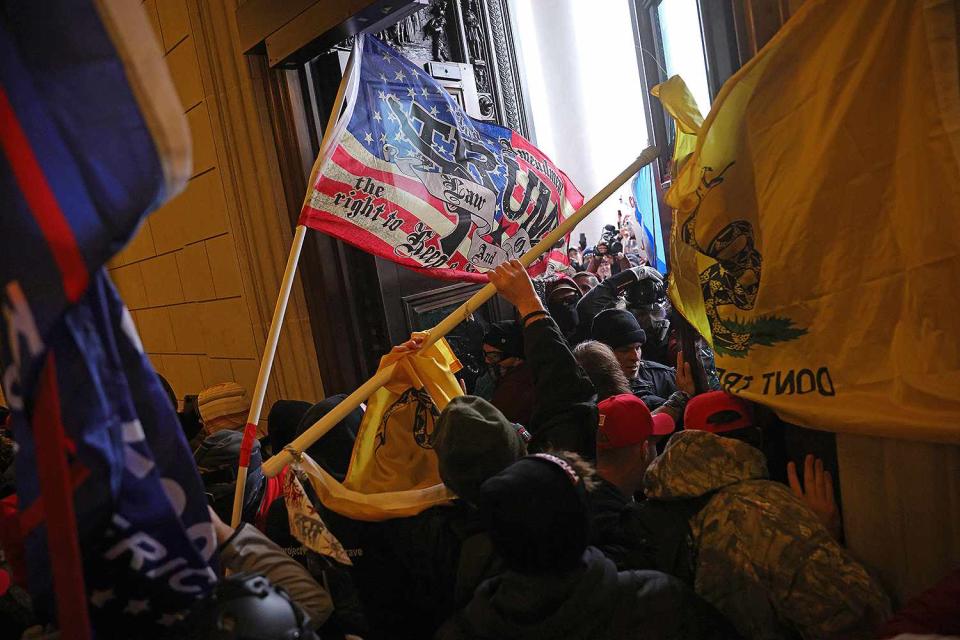
Win McNamee/Getty Rioters breach U.S. Capitol on Jan. 6, 2021
"What explains President Trump's behavior? Why did he not take immediate action in a time of crisis? Because President Trump's plan for Jan. 6 was to halt or delay Congress's official proceeding to count the votes," Kinzinger said July 21. "The mob attacking the Capitol quickly caused the evacuation of both the House and the Senate and the count ground to an absolute halt and was ultimately delayed for hours. The mob was accomplishing President Trump's purpose, so of course he didn't intervene."
RELATED: Judge Says Trump Can't Block Jan. 6 Committee's Access to Records: 'Presidents Are Not Kings'
The committee has indicated that the hearings will continue in September. "The investigation is still ongoing," Kinzinger said. "We're getting to the bottom of what we need to know."
Meanwhile, Attorney General Merrick Garland has called the Department of Justice's separate probe of the events on and around Jan. 6 "the most wide-ranging investigation in its history."
"We will hold accountable anyone who was criminally responsible for attempting to interfere with the transfer, legitimate, lawful transfer of power from one administration to the next," Garland said in a July interview.
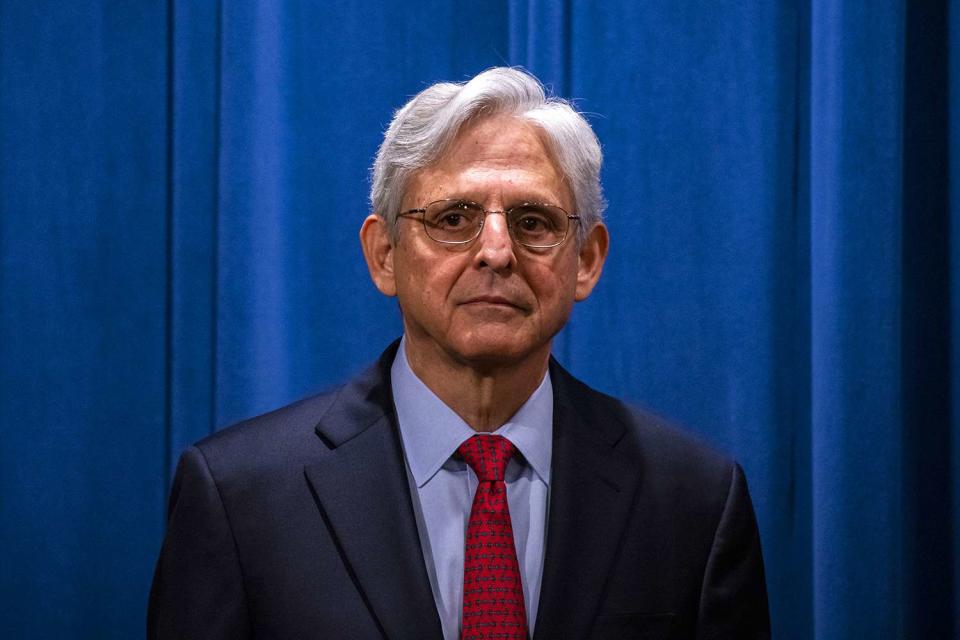
Samuel Corum/Bloomberg via Getty Images Merrick Garland
Garland said the Justice Department has been moving "urgently" despite the appearance that its investigation is lagging behind the panel of lawmakers. He added that questions about the Justice Department's activities are impossible to avoid.
"The reason there is this speculation and uncertainty is that it's a fundamental tenet of what we do as prosecutors and investigators is to do it outside the public eye," he said.
Asked about the possibility — and dire repercussions for the country — of an indictment of a former president or a candidate for the presidency, Garland said, "We pursue justice without fear or favor."
Georgia Election Interference
After losing the popular vote in Georgia by 11,779 votes during the 2020 presidential race, Trump and his associates had multiple interactions with election officials in the once-reliably red state, including a phone call the former president placed on Jan. 2, 2021, to Secretary of State Brad Raffensperger to demand he "find 11,780 votes" to change the outcome.
In February 2021, Fulton County District Attorney Fani Willis launched a criminal investigation into whether into failed efforts to overturn the results that gave now-President Biden her state's 16 electoral votes.
She told Georgia officials at the time that the inquiry focuses on potential state election fraud violations as well as conspiracy, racketeering, making false statements to government officials and other potential crimes.
RELATED: Georgia Secretary of State and Local Prosecutor Launch Probe of Trump's Call to 'Find' More Votes
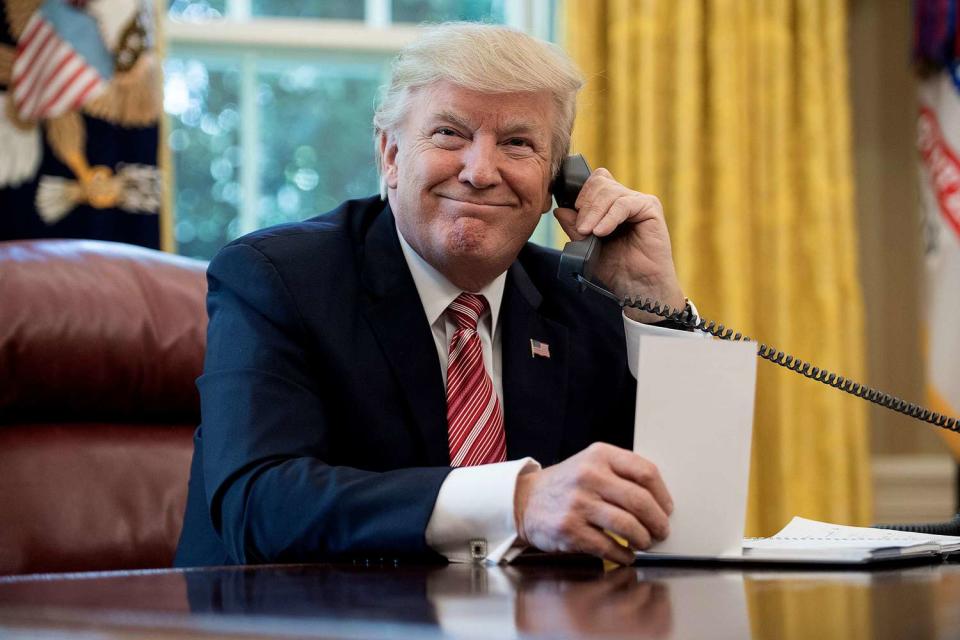
NICHOLAS KAMM/AFP via Getty Images Donald Trump
Trump has said he did nothing wrong in the January call.
A Georgia special grand jury examining efforts to overturn the state's election results has issued subpoenas for testimony from Republican Sen. Lindsey Graham, former New York City Mayor Rudy Giuliani, and other allies of the former president.
Fulton County Superior Court Judge Robert McBurney signed off on the subpoenas, which were also issued to members of Trump's legal team, including attorneys John Eastman, Cleta Mitchell, Kenneth Chesebro and Jenna Ellis, according to a July Atlanta Journal-Constitution report.
Never miss a story — sign up for PEOPLE's free daily newsletter to stay up-to-date on the best of what PEOPLE has to offer.
According to the paper, the 23-person special grand jury investigating the alleged pressure campaign on elections officials has heard testimony from a "parade of witnesses, including some who had direct contact with Trump and his associates in late 2020 and early 2021."
Sen. Graham's subpoena cites a November 2020 phone call Graham made to Raffensperger, in which he allegedly inquired about "reexamining certain absentee ballots cast in Georgia in order to explore the possibility of a more favorable outcome for former President Donald Trump."
Attorneys for Graham have said in arguing a challenge to the subpoena that the call was merely part of the senator's investigation into claims of voter fraud.
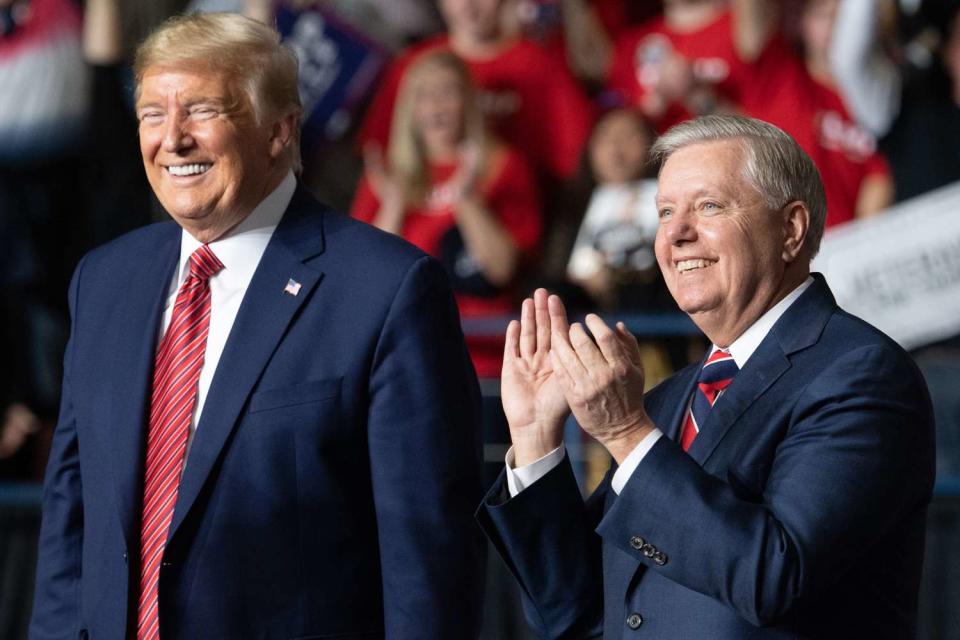
SAUL LOEB/AFP via Getty Images
Unlike Graham, who was informed that he "is neither a subject nor target of the investigation, simply a witness," according to his attorneys, prosecutors said Giuliani, Trump's former personal attorney, is a target in the wide-ranging criminal investigation into election interference in Georgia.
Guiliani's subpoena noted that he appeared before the Georgia state Senate in December 2020 and made "statements, both to the public and in subsequent legislative hearings, claiming widespread voter fraud in Georgia … using the now-debunked State Farm Video in support of those statements."
That video — which was also cited by Trump — purports to show election workers bringing suitcases of false ballots for Biden into the State Farm Arena, and then running them through the machines multiple times. But state investigators who reviewed the tapes said there was nothing nefarious going on and that the election officials were undertaking "normal ballot processing."
A poll worker seen in the video testified before the Jan. 6 committee, detailing the threats she received since the footage was shared by Trump and others.
RELATED: Ga. Poll Workers Testify at Jan. 6 Capitol Riot Hearing About Living in Fear Since 2020 Election
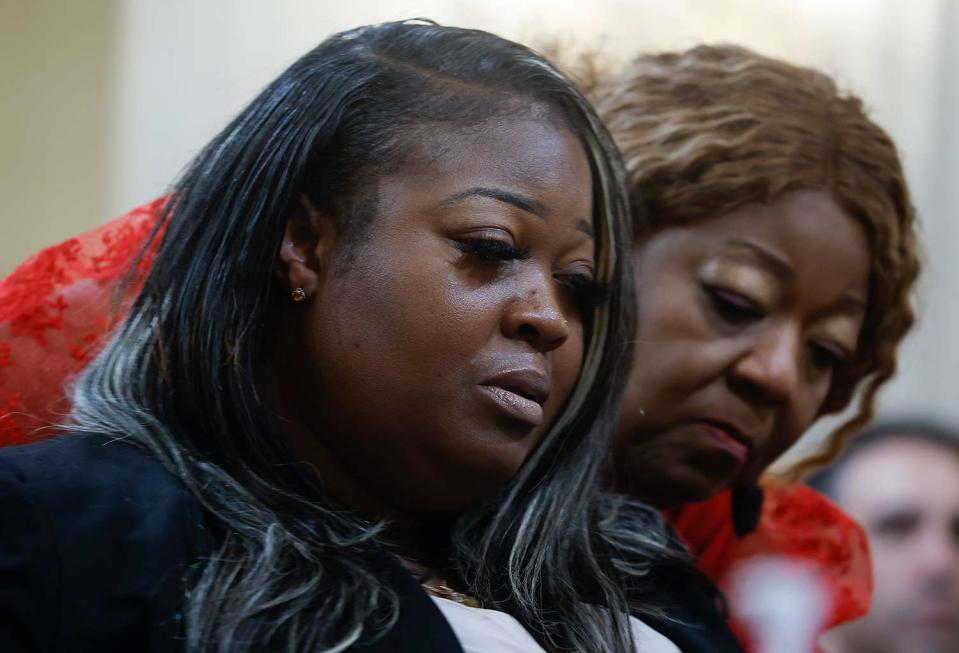
Chip Somodevilla/Getty
"I've lost my name, I've lost my reputation, I've lost my sense of security, all because a group of people, starting with 45 and his ally Rudy Giuliani, deciding to scapegoat me and my daughter, to push their own lies about how the presidential election was stolen," one of those workers, Ruby Freeman, testified.
The Trump Organization's Finances
New York Attorney General Letitia James is leading a civil investigation into whether the former president's family business, the Trump Organization, misstated the value of its assets on annual financial statements, tax submissions and other documents in order to secure loans and insurance coverage and obtain other economic and tax benefits.
James' office has said it has evidence of "fraudulent or misleading asset valuations" used by Trump and members of his family to secure loans, insurance coverage and tax deductions.
The Trumps have argued that James' investigation is politically motivated, which she has repeatedly denied.
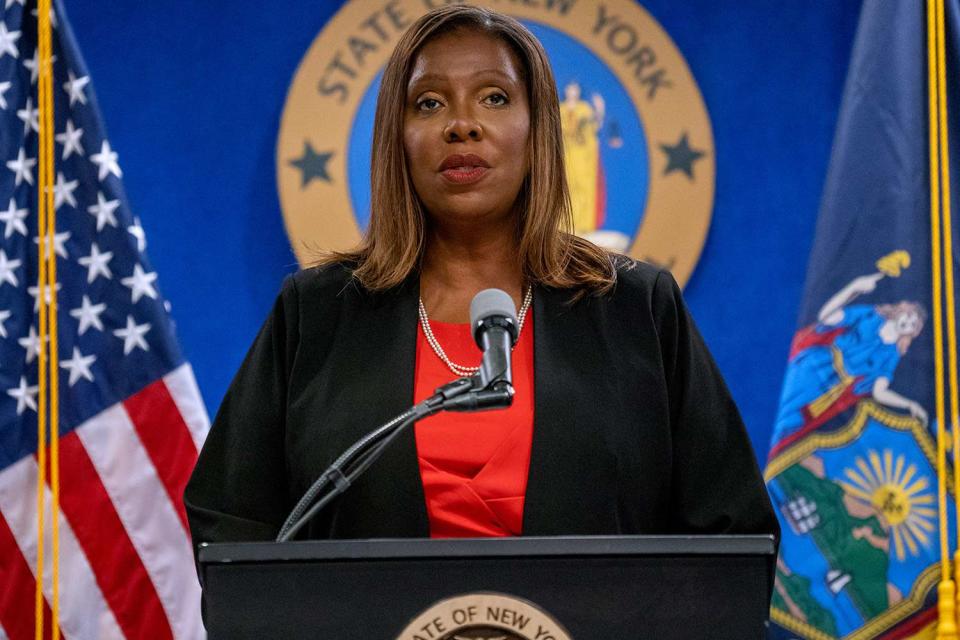
Dee Delgado/Getty Letitia James
"Each of the individuals was directly involved in one or more transactions under review," the attorney general's office has said of the Trumps' and their business dealings.
The family is currently facing both a civil and a criminal investigation into the accuracy of Trump Organization financial statements. The criminal probe had slowed after senior prosecutors resigned when a district attorney reportedly expressed doubts about the case, the New York Times reported, but it remains ongoing.
RELATED: New York Attorney General Claims She Has Evidence of Fraud by Trump, Don Jr. and Ivanka
Trump sat for a deposition in the civil case earlier this month, and said he declined to answer questions while under oath at the state attorney general's office in Manhattan, instead invoking his Fifth Amendment right.
"I once asked, 'If you're innocent, why are you taking the Fifth Amendment?' Now I know the answer to that question," Trump said in a statement. "When your family, your company, and all the people in your orbit have become the targets of an unfounded politically motivated Witch Hunt supported by lawyers, prosecutors and the Fake News Media, you have no choice."
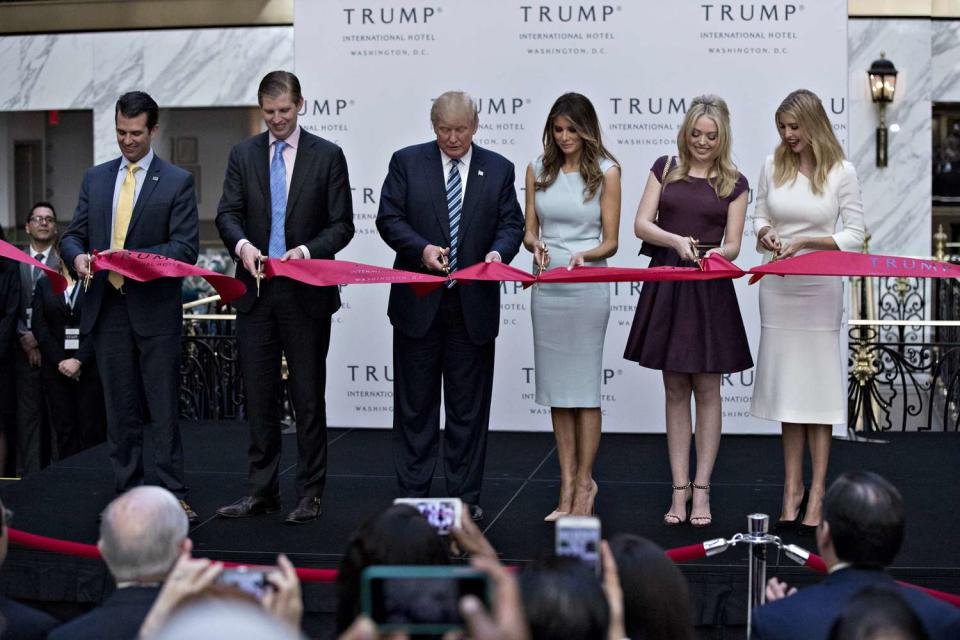
Andrew Harrer/Bloomberg via Getty Images
Two of Trump's adult children — Ivanka Trump and Donald Trump Jr. — sat for depositions days before their father.
The family fought earlier attempts to get them to testify in the case, previously asking a judge to quash what they called an "unprecedented and unconstitutional" bid for their testimony after being subpoenaed in December.
The court ultimately directed Donald, Donald Jr. and Ivanka to appear for testimony — a decision it reaffirmed after an appeal.
Trump's middle son, Eric Trump, who serves as an executive vice president at Trump Organization, was subpoenaed early on and testified in 2020. According to reports, both he and former Trump Organization CFO Allen Weisselberg asserted their Fifth Amendment right when questioned.
RELATED: Trump Family Bites Back in Legal Response to New York Attorney General's Mounting Investigation
In the criminal case, Weisselberg pleaded guilty Aug. 18 to tax fraud charges as part of a deal with prosecutors in the Manhattan district attorney's office that are investigating a scheme allegedly orchestrated "by the most senior executives" of the company.
Trump decried the case against his company's former CFO as part of a strategy to target him.
In exchange for pleading guilty to all 15 felony charges, Weisselberg will be sentenced to 5 months in jail and 5 years probation. According to reports, he would have faced up to 15 years in prison were it not for the plea deal.

